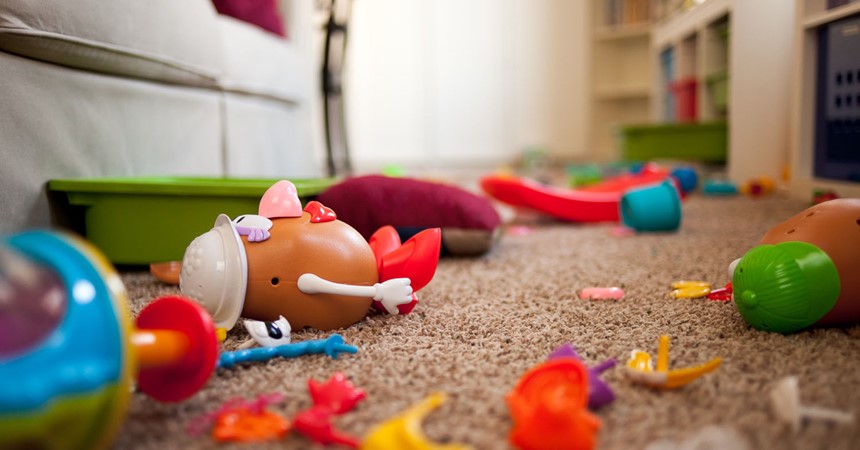It isn’t often widely publicised, but parenting is hard work; really hard work. While, mid-meltdown in the middle of the grocery store, it can feel like you are the only parent struggling with their child’s tantrums, you are most definitely not alone. I can also tell from your words that you are a loving parent and doing your best.
When it comes to toddler tantrums, it often helps to know a little bit about the toddler brain.
From conception to about two years of age, a child’s brain undergoes its most rapid period of growth and plasticity.
The toddler brain develops from side to side with the right side assisting sensory information and emotions, and the left side helping with thought and language. Between the ages 0-2, the right side undergoes a lot of growth (for example, development of walking), and between 2-4 years of age, the left side undergoes a lot of growth (for example, development of speech).
The toddler brain also develops from the bottom up, like a house under construction. The downstairs level includes the “reptile” and “mammalian” parts of the brain, involved in survival and the “fight, flight, freeze” response. The upstairs level includes the “thinking” parts of the brain, which are largely undeveloped in toddlers; not fully developing until well into adulthood.
And so, what does all this mean for a parent in the middle of supporting their child through a downstairs brain meltdown? Parenting with the brain in mind, reminds parents that their child is not throwing a tantrum on purpose, they are likely overwhelmed by sensory information and/or big feelings that they can’t quite manage on their own. Parents can be empowered to know that tantrums offer an opportunity to foster healthy connections in their toddlers’ developing brain.
While there is no one size fits all, you might like to consider this.
- What is the feeling or need underneath this tantrum or meltdown? Is the toddler tired, hungry, or thirsty? Does the toddler need to know what is coming up next? Do they need some extra stimulation? Do they need less stimulation? Are they learning a new limit?
- Once a meltdown has started, often there is no quick fix and your child just needs you to stay close by and offer comfort when they appear ready.
- You might have heard the saying “share our calm”. This means that calming your downstairs brain (for example, with a few breaths, reminding yourself that this is just one of the joys of parenting, maybe making a cup of tea or coffee) can help to calm your child’s downstairs brain.
- As the meltdown subsides, it can help to put words to what happened. It might be: “When I said no to running around the shops, you looked frustrated and sad, you had a frown and were crying. It’s not safe to run around the shops. We can go to the park and do some running after the shops.”
- Is it possible to plan ahead to minimise tantrums in the future? This might include having food and drink at the ready, having a routine or ritual when you go to the shops or park, working around naptimes, being playful and silly as you make a request or give an instruction.
More information and support
- Parenting books I recommend include:
- The Whole Brain Child by Daniel J. Siegel and Tina Payne Bryson
- No Drama Discipline by Daniel J. Siegel and Tina Payne Bryson
- Raising a Secure Child by Kent Hoffman, Glen Cooper, and Bert Powell, with Christine M. Benton
- Parenting courses or workshops I recommend include:
- Tuning in to Kids
- Tuning in to Teens
- Circle of Security
- A psychologist or other health professional with expertise working with parents, children, and families can also help. To arrange an appointment with a CatholicCare psychologist, call 02 4979 1120.























































































